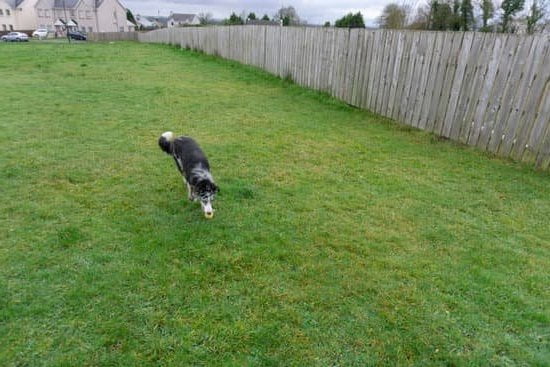Are you wondering how to train a Weimaraner dog? Training this unique and loyal breed requires understanding their history, traits, and characteristics. From setting up the right training environment to utilizing positive reinforcement, there are various techniques that can help you train your Weimaraner effectively.
The history and background of the Weimaraner breed play a crucial role in understanding how to train them. With roots in Germany, these dogs were originally bred for hunting and have since become popular as both working and companion animals. Their intelligence, energy, and strong prey drive make them an interesting challenge to train.
Understanding the unique traits and characteristics of the Weimaraner is essential before diving into training. Known for their independence and stubbornness, Weimaraners require firm yet gentle handling. An understanding of their natural instincts will aid in setting up a proper training environment that caters to their specific needs and tendencies. Whether you are training a puppy or an adult Weimaraner, patience, consistency, and positive reinforcement are key components in successful training.
Understanding the Unique Traits and Characteristics of the Weimaraner
The Weimaraner, also known as the “Grey Ghost” due to its sleek and elegant silver-gray coat, is a highly versatile and intelligent breed. Originally bred for hunting large game such as deer and bear, Weimaraners possess a strong prey drive, high energy levels, and an incredibly loyal nature. Understanding the unique traits and characteristics of the Weimaraner is crucial for effective training and successful integration into a household.
High Energy Levels
One of the most prominent traits of the Weimaraner is its boundless energy. This breed requires ample exercise and mental stimulation to prevent boredom and potentially destructive behaviors. Without proper outlets for their energy, Weimaraners can become hyperactive or even anxious. It’s important to engage in regular vigorous exercise such as running, hiking, or playing fetch to keep them physically and mentally satisfied.
Loyalty and Affection
Weimaraners are known for their unwavering loyalty to their families. They are affectionate dogs that thrive on companionship and are often referred to as “velcro dogs” because they love to be in close proximity to their owners at all times. This strong bond with their family means that they can be prone to separation anxiety if left alone for extended periods. Proper training should focus on teaching independence and confidence when being apart from their owners.
Prey Drive
Due to their hunting background, Weimaraners have a strong prey drive which makes them prone to chasing small animals such as squirrels or cats. This instinctual behavior requires careful management through obedience training, particularly in off-leash environments. By understanding these unique traits and characteristics of the Weimaraner breed, owners can tailor their training approach to effectively address these specific needs for a well-behaved companion dog.
Setting Up a Proper Training Environment for Your Weimaraner
Understanding the Needs of a Weimaraner
Before beginning any training, it is essential to understand the needs and characteristics of the Weimaraner breed. Weimaraners are known for their high energy levels and intelligence. They require regular physical exercise and mental stimulation to prevent boredom and destructive behavior. Therefore, setting up an environment that allows for ample exercise and mental engagement is crucial for successful training.
Creating a Consistent Schedule
Weimaraners thrive on consistency, so it is important to establish a regular training schedule. This includes designated times for feeding, potty breaks, exercise, and training sessions. By maintaining a consistent routine, your Weimaraner will become more receptive to training and will be better able to anticipate what is expected of them.
Implementing Positive Reinforcement Techniques
When creating a proper training environment for your Weimaraner, it is important to utilize positive reinforcement techniques. Reward-based training methods such as treats, praise, and playtime are effective in motivating and encouraging desired behaviors. By establishing a positive association with training exercises, your Weimaraner will be more eager to participate and learn.
Creating a proper training environment for your Weimaraner involves understanding their needs, establishing consistency in their routine, and utilizing positive reinforcement techniques. By doing so, you can set the stage for successful obedience and advanced training while ensuring that your Weimaraner remains well-behaved and stimulated both mentally and physically.
Basic Obedience Training for Weimaraner Puppies
The Weimaraner breed has a rich history dating back to the early 19th century in Germany. Originally bred for hunting, Weimaraners are known for their high energy levels, intelligence, and loyalty to their owners. They are also characterized by their sleek silver-gray coat and striking amber or blue-gray eyes. Understanding the unique traits and characteristics of the Weimaraner is essential in training these dogs effectively.
When it comes to training a Weimaraner puppy, setting up a proper training environment is crucial. Since they are highly energetic and intelligent, it’s important to provide them with plenty of mental stimulation and physical exercise. A good training environment should be free from distractions and conducive to learning. Consistency and patience are also key elements when training a Weimaraner puppy.
Basic obedience training is an important foundation for your young Weimaraner. This includes commands such as sit, stay, come, heel, and down, among others. Positive reinforcement techniques work best with this breed, as they respond well to praise and rewards during training sessions. It’s also important to start socializing your Weimaraner puppy early on to ensure they grow up to be well-behaved and well-adjusted adult dogs.
| Weimaraner Breed Characteristics | Training Tips |
|---|---|
| High energy levels | Provide plenty of physical exercise and mental stimulation |
| Loyalty to owners | Use positive reinforcement techniques for obedience training |
| Sleek silver-gray coat; striking amber or blue-gray eyes | Avoid distractions in the training environment for better focus |
Advanced Training Techniques for Adult Weimaraners
Once your Weimaraner has mastered basic obedience training, it’s time to move on to more advanced techniques to continue developing their skills and keeping them mentally stimulated. Adult Weimaraners are known for their intelligence and energy, so providing them with advanced training can help channel their abilities in a positive way. Here are some techniques to consider for advanced training:
- Agility Training: Weimaraners are agile and athletic dogs, making them excellent candidates for agility training. Setting up an agility course in your backyard or finding a local dog agility group can provide both physical and mental stimulation for your Weimaraner.
- Scent Work: Weimaraners have a strong sense of smell and enjoy using it. Engaging them in scent work activities, such as hide-and-seek with treats or toys, can fulfill their natural instincts and provide mental enrichment.
- Advanced Obedience Commands: Building on the basic commands of sit, stay, and come, you can teach your Weimaraner more complex obedience commands like heel, place, or leave it. These commands require focus and concentration from your dog.
In addition to these techniques, it’s important to continue reinforcing positive behavior through rewards and praise. Consistency is key when training adult Weimaraners, as they thrive on routine and clear expectations.
Engaging your Weimaraner in challenging activities not only provides physical exercise but also mental stimulation. This is crucial for preventing boredom and potential destructive behaviors. By consistently incorporating advanced training techniques into your Weimaraner’s routine, you can help them reach their full potential as intelligent and capable companions.
Socialization and Behavior Management for Weimaraners
Weimaraners are known for their intelligence, energy, and strong prey drive. This breed was originally developed in Germany for hunting large game such as deer, boar, and bear. They are also known for their distinctive silvery-gray coat and striking blue or amber eyes. Because of their hunting background, Weimaraners have a natural instinct to chase and may exhibit behaviors such as digging and barking if not properly trained and socialized.
Socialization is key when it comes to managing the behavior of Weimaraners. Early socialization helps them become well-rounded and adaptable dogs. It is important to expose them to various people, animals, environments, sounds, and experiences during puppyhood to prevent fearfulness or aggression as adults. Introducing them to obedience classes, puppy playdates, and regular outings can help build their confidence and teach them appropriate interactions with others.
In addition to socialization, proper behavior management is essential in training Weimaraners. Positive reinforcement techniques work best with this breed as they are sensitive dogs that respond well to praise, treats, and rewards.
Consistency in training is important for maintaining good behavior in Weimaraners; set clear boundaries and rules from an early age and be firm but fair when enforcing them. Patience is also key; Weimaraners thrive on attention from their owners and will respond positively when given time and consistent guidance.
| Aspect of Training | Key Points |
|---|---|
| Socialization | Expose Weimaraner puppies to various people, animals, environments. |
| Behavior Management | Utilize positive reinforcement techniques; be consistent with boundaries; exercise patience. |
Tips for Overcoming Common Training Challenges With Weimaraners
Training a Weimaraner can come with its own set of challenges due to their strong-willed and independent nature. However, with the right approach and consistent training, these challenges can be overcome. Here are some tips for overcoming common training challenges with Weimaraners:
- Be patient: Weimaraners can be stubborn at times, so it’s important to remain patient and calm during training sessions. Getting frustrated or angry will only hinder the training process.
- Consistency is key: Weimaraners respond well to consistent training methods. Set clear boundaries and rules, and be persistent in enforcing them.
- Provide mental stimulation: Due to their high intelligence, Weimaraners need mental stimulation to prevent boredom and destructive behavior. Incorporate puzzle toys, interactive games, and different training exercises into their daily routine.
In addition to the above, it’s important to establish yourself as the leader of the pack early on. Weimaraners thrive under confident and assertive leadership, so be sure to establish yourself as the alpha in a firm but gentle manner.
Utilizing positive reinforcement techniques such as treats, praise, and rewards is also effective in overcoming training challenges with this breed. By rewarding good behavior, you can motivate your Weimaraner to listen and obey commands.
By understanding the unique traits of the Weimaraner breed and implementing these tips into your training regimen, you’ll be better equipped to overcome common challenges and effectively train your Weimaraner for a happy and harmonious relationship.
Utilizing Positive Reinforcement and Rewards in Weimaraner Training
Training a Weimaraner can be a rewarding experience, but it requires patience and consistency. One effective method for training these intelligent and energetic dogs is by utilizing positive reinforcement and rewards. Weimaraners respond well to praise, treats, and other rewards, making them ideal candidates for this type of training approach.
Positive reinforcement involves rewarding your Weimaraner with something they find valuable, such as treats, toys, or verbal praise, when they exhibit the desired behavior. This method encourages the dog to repeat the behavior in order to receive the reward again. It is important to deliver the reward immediately after the desired behavior occurs in order for the dog to make a clear connection between the behavior and the reward.
When using positive reinforcement in Weimaraner training, consistency is key. It is important to provide immediate and consistent rewards for desired behaviors while ignoring or redirecting unwanted behaviors. This will help your Weimaraner understand what is expected of them and motivate them to continue displaying good behavior. Additionally, varying the types of rewards used can help keep your Weimaraner engaged and interested in training sessions.
The Importance of Exercise and Mental Stimulation in Training a Weimaraner
In conclusion, the key to successfully training a Weimaraner lies in understanding and addressing their unique needs and characteristics. The Weimaraner breed is known for its high energy levels and intelligence, making it crucial to provide ample exercise and mental stimulation as part of their training regimen. By incorporating these elements into their daily routine, owners can help manage their dog’s behavior and prevent common issues associated with the breed.
It is essential to create a proper training environment that allows for both physical and mental exertion. Providing regular opportunities for exercise, such as long walks, runs, or outdoor playtime, can help channel the Weimaraner’s energy in a positive way. Additionally, engaging their minds through interactive toys, puzzles, and training activities will help keep them mentally stimulated and prevent boredom or destructive behaviors.
Furthermore, utilizing positive reinforcement techniques and rewards can encourage desired behaviors in Weimaraners. Whether it’s treats, praise, or playtime, finding what motivates your dog will be instrumental in fostering obedience and cooperation during training sessions. With patience, consistency, and a focus on meeting their physical and mental needs, owners can successfully train and develop a well-behaved Weimaraner companion.
Frequently Asked Questions
Are Weimaraner Easy to Train?
Weimaraners are known to be intelligent and eager to please, which can make them relatively easy to train. However, their strong-willed nature and high energy levels may require consistent and patient training methods.
Are Weimaraners Hard to Potty Train?
Potty training a Weimaraner can be challenging due to their stubbornness and independent streak. It may take time and consistency to successfully potty train a Weimaraner, but it is definitely possible with positive reinforcement and a structured routine.
What Is a Weimaraner Bad Behavior?
Common behavioral issues in Weimaraners include separation anxiety, excessive barking, and digging. They are also known for being prone to jumping up on people as a form of greeting. These behaviors can be managed through proper training, socialization, and regular exercise to channel their energy into more positive outlets.

Welcome to the blog! I am a professional dog trainer and have been working with dogs for many years. In this blog, I will be discussing various topics related to dog training, including tips, tricks, and advice. I hope you find this information helpful and informative. Thanks for reading!





